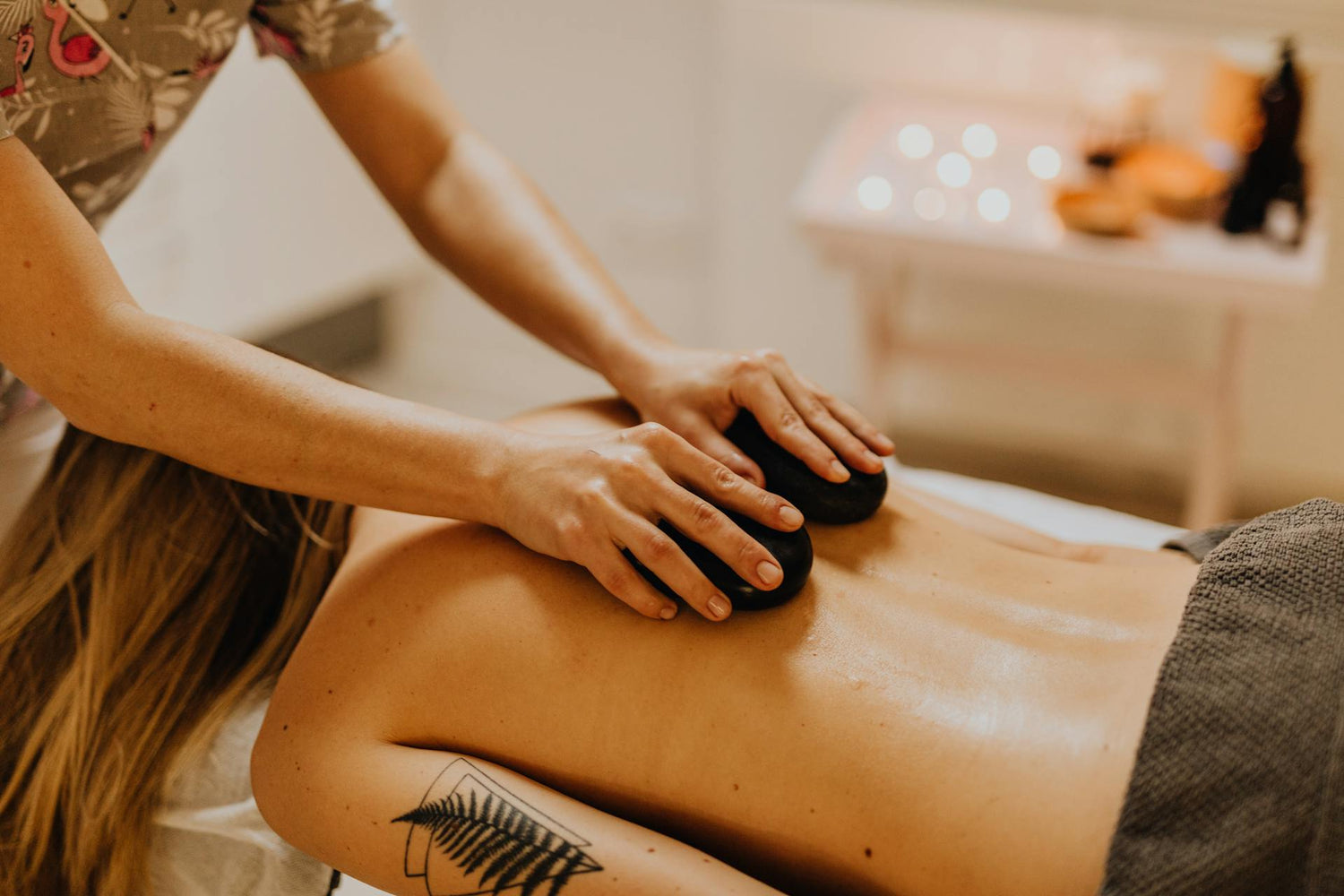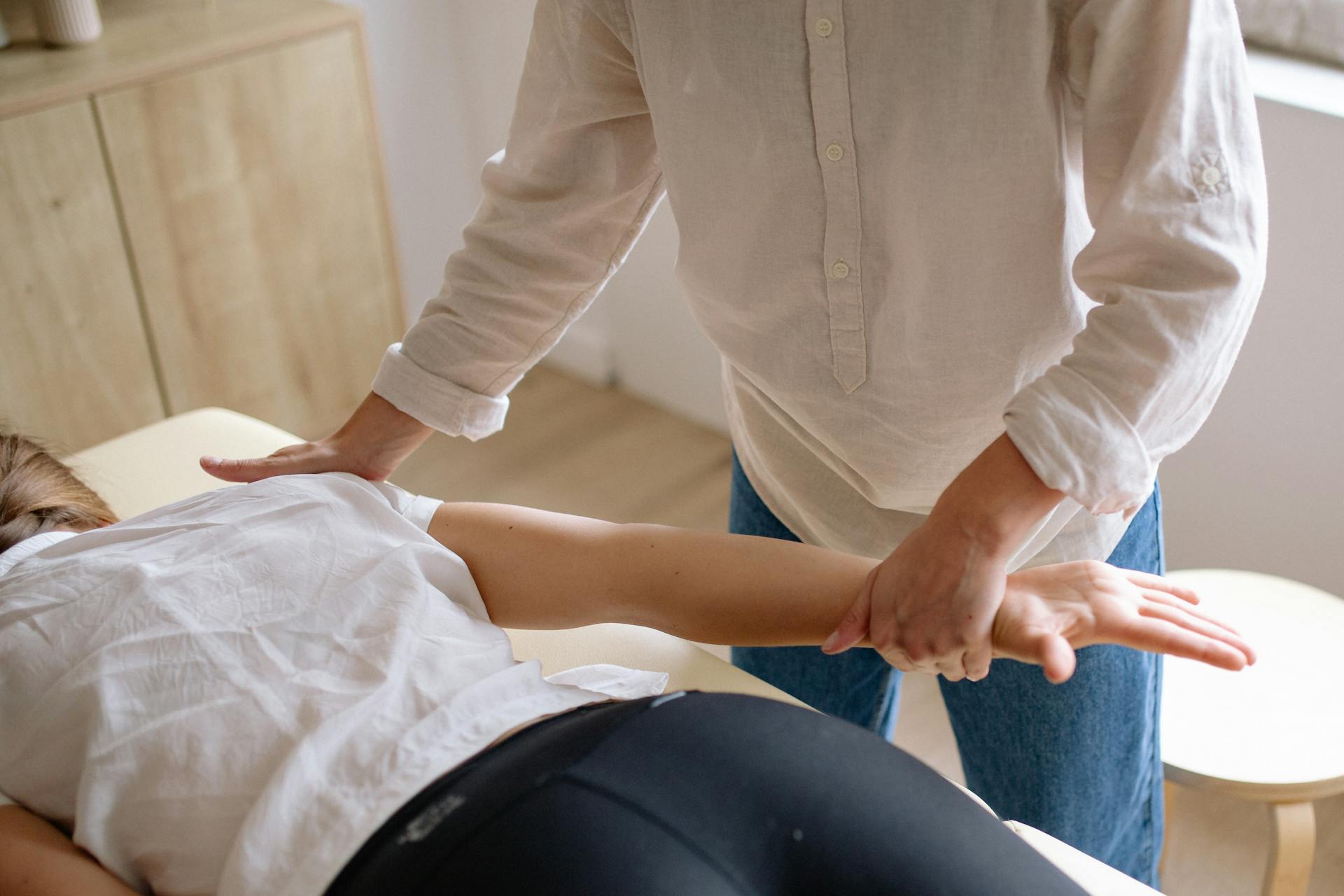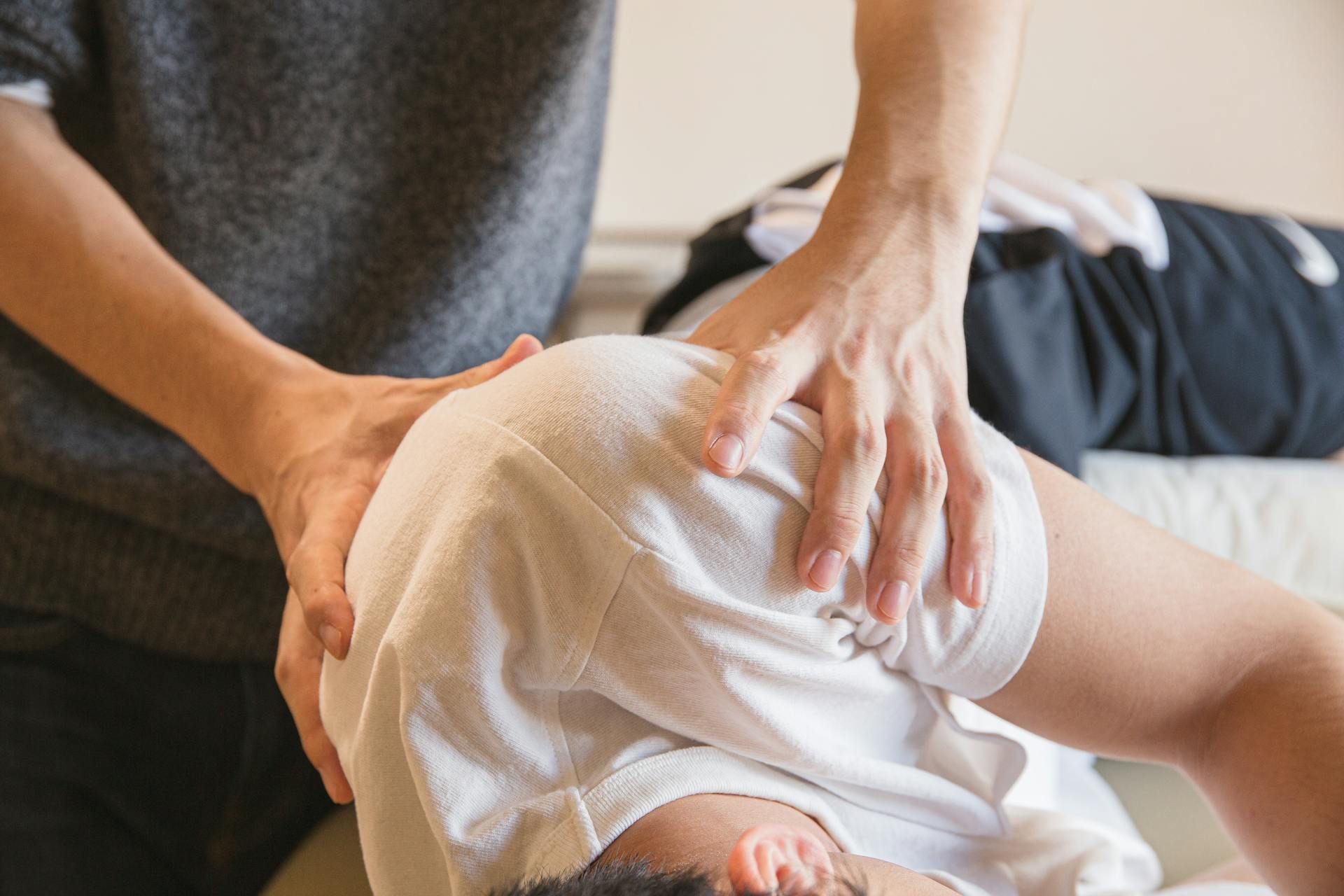If you’re like most people, you know that maintaining your heart health takes work. And with heart disease becoming more common, it’s important to make space for healthy habits, like exercising, reducing stress, or simply eating more greens. But what about massage therapy? Could it offer any benefits for heart health — and if so, what are they?
Massage is best known for relieving muscle pain, but studies show that it can support many other aspects of your well-being — including your heart.
Below, we’ll explore the benefits of massage for heart health, including the research and how to get started safely. But first, let’s answer the question: “How does stress affect your heart?”
How Stress Affects Heart Health
As part of a complex cardiovascular system, your heart can be affected by a variety of different factors.
Some of them may be outside of your control, like your genetics, age, or gender. However, many modifiable parts of your lifestyle can also impact your heart health.
One significant factor is chronic stress, which can have a profound effect on your blood pressure, blood sugar, and even your cholesterol. In addition, it can lead you to engage in activities that are harmful to your heart — like smoking, drinking, or eating unhealthy foods. And if you’ve ever gone through a period of high stress, you know that it can also disrupt your sleep and deplete your energy.
Conversely, a low-stress lifestyle paired with the right habits can keep your heart healthy. This usually means a combination of exercise, eating well, and avoiding harmful substances — but for many people, it can also include massage therapy.
The Importance of Stress Management and Self-Care
Did you know better psychological well-being is associated with a lower risk of heart disease? When it comes to cardiovascular health, this is why it’s important to keep an eye on your stress and emotional wellness.
With that in mind, relaxation and self-care tools can be a great addition to any heart-healthy lifestyle. And they’re not just limited to massage. Things like meditation, mindfulness, and deep breathing can all help you better cope with stress, lower your blood pressure, and improve your heart health as a whole.
The Benefits of Massage for Heart Health
Massage therapy is one of the most relaxing ways to wind down after a long day, but that’s not the only way it can benefit your heart.
Regular massage can also:
1. Alleviate Stress and Tension
When you’re dealing with high stress, a soothing massage can do wonders for your well-being. In fact, one study involving 66 ICU nurses found that four sessions of Swedish massage over two weeks made a significant dent in their stress levels.
So, how does it work? Massage is able to shift your body into a state of deep relaxation, all while helping you become centered in the present moment. But it also can impact specific markers related to stress — like your cortisol levels, endorphins, and other feel-good hormones.
2. Improves Your Sleep
You probably know that exercise is crucial for your heart health, but did you know that sleep is equally important?
Not getting enough high-quality sleep could increase your risk of diabetes, poor diet, inflammation, and even stroke or heart attack. Fortunately, research suggests that a short bedtime massage can be a great way to get more restful sleep.
One small 2019 study looked at whether a back massage could offer any benefits for ICU patients’ sleep. The results showed that just a 10-minute massage helped improve patients’ anxiety levels and overall sleep quality.
3. Promotes Healthy Blood Pressure and Blood Flow
When it comes to massage for heart health, past research suggests that it may also help with blood flow. In a 2014 study, researchers found that a 90-minute Swedish massage boosted participants’ circulation after a workout — with these positive effects lasting about 72 hours before tapering off.
Beyond that, a good back rub could even lead to a short-term reduction in blood pressure. It does this by activating your body’s relaxation response, which helps to lower blood pressure, relieve tension, and calm your heart rate.
Of course, massage can’t lead to permanent changes in your blood pressure, and it isn’t a treatment for hypertension. But when added to your self-care routine, it offers a healthy way to combat stress’s impact on your cardiovascular system.
4. Supports a Fit and Healthy Lifestyle
If you’ve ever heard the term “sports massage,” it might not surprise you to learn that massage is a fantastic addition to any fit lifestyle. Not only does it help ease achy muscles — like those that come with delayed onset muscle soreness — but many athletes find that it improves recovery as a whole.
With the right techniques, a post-workout rubdown from a massage therapist or loved one can help you feel and function better. It can improve your range of motion and prevent injury, all while speeding up your recovery.
Overall, these benefits can make it easier to stick to a lifestyle that supports your long-term heart health.
5. Can Be Beneficial for Some Cardiac Patients
Surprisingly, massage therapy may also benefit certain people dealing with cardiac issues. For example, a small 2010 study looked at whether a 20-minute massage could offer any benefits for cardiac patients recovering from surgery — and it showed promising results.
The researchers split patients into two groups: those receiving standard care, and those receiving standard care plus massage.
At the end of the study, patients who received massage reported lower pain, anxiety, and tension scores compared to those who didn’t — with the authors noting that the patients’ feedback was “markedly positive.”
A Note on Massage for Those With Heart Conditions
For many people, massage can be a wonderful addition to a heart-healthy lifestyle. But because it can affect circulation and blood pressure, it may not be safe for everyone.
When it comes to massage for heart health, here are some precautions to keep in mind:
- Massage can cause fluctuations in blood pressure. And for some, this can lead to symptoms like dizziness or fainting. Be sure to check with your physician before trying a massage if you have uncontrolled high or low blood pressure.
- Blood thinners can make the body more sensitive to damage and bruising. For this reason, those on blood thinning medications should get the OK from their doctor before trying massage, and work with a certified professional.
- Patients with heart failure, coronary artery disease, atrial fibrillation, or other serious heart conditions should also check with their specialist before trying massage. Certain types of massage may be unsafe with conditions like these.
- Those with a history of blood clots should avoid massage unless approved by their physician.
All in all, there’s no one-size-fits-all approach to massage for those with cardiac conditions, and it largely depends on your unique health history. To ensure you stay safe, it’s important to work with your doctor if you have any medical condition you’re not sure about.
Popular Types of Massage for Heart Health

Once you’ve determined that massage is right for you, you might wonder: What are the best modalities to try?
The truth is that almost all types of massage can help you reap the benefits of relaxation and stress relief. But to help you sift through your options, here’s a list of some of the most popular styles to consider:
Swedish Massage
Swedish massage is a traditional type of massage that you can find at almost any spa or massage clinic. It’s well-known for being deeply soothing, and is often used to relieve all-over tension.
Because it’s one of the most relaxing types of massage, it’s a popular option for those interested in heart health. Not only does it promote healthy blood flow, but it can also help you manage pain, improve flexibility, and even get better sleep.
The techniques used in Swedish massage include:
- Petrissage (kneading)
- Effleurage (gliding)
- Friction (targeted circular movements)
- Tapotement (tapping)
Sports Massage
If you live an active lifestyle, sports massage may be well worth a try. It combines stretching, deep massage, and targeted pressure to break up pain points and improve performance.
This relaxing modality can help calm your body and release endorphins. But beyond that, its ability to improve range of motion and relieve pain can boost your fitness routine — and in turn, your heart health.
Trigger Point Therapy
Trigger point therapy is a massage technique that often gets added to Swedish, sports, and other massage styles. This technique is best for people who struggle with myofascial pain and muscle knots, especially in the back or shoulders.
Typically, massage professionals or physical therapists will apply this technique on patients who have tight bands of muscle tissue. They do this by holding targeted, deep pressure on these points until they release.
Like other types of massage, trigger point therapy is a great way to support blood flow and relaxation. But it's especially useful for those wanting to tackle long-term muscle pain and stiffness.
Self-Massage Tools for a Healthy Heart
If you want to reap the benefits of massage for heart health every day, it can help to invest in a therapeutic self-massage tool. Some of the top options include:
- Foam rollers: These come in a wide range of sizes and textures, and are perfect for rolling out muscles and fascia (aka your body’s connective tissue). Because they’re so versatile, you can use them to relieve knots and tension wherever you may feel it.
- Massage balls: A simple massage ball is a great way to target knots in the back and shoulders — and a bonus is that it works incredibly well as a foot massager.
- Massage guns: These are a good option for those wanting to boost post-workout recovery and muscle health. They work by using percussive therapy (which involves quick bursts of mini-massage) to ease tension and increase blood flow.
- Electric massage tools: There are countless electric massage tools out there, coming in all shapes and sizes. Whether you opt for a body or foot massager, these devices can provide a more effortless, hands-off massage experience.
General Massage Precautions to Keep In Mind
For most people, massage can fit into a well-rounded self-care routine — whether as a biweekly visit to a masseuse, or a daily relaxation tool. However, there are some general precautions to keep in mind, aside from what we covered earlier regarding heart conditions.
With that being said, here are some times when it’s best to check with your physician before trying this natural therapy:
- You’re dealing with an acute injury, like a broken bone or torn muscle
- You’re recovering from surgery
- You have any skin conditions or open wounds
- You’re currently pregnant
- You have a liver or kidney condition
- You have any form of cancer
- You have any other condition that may become exacerbated by massage
Supporting Your Heart in Other Ways
As you now know, a good massage can bring on a slew of benefits for your heart. It can ease stress, improve sleep, and even temporarily reduce blood pressure.
But if you’re aiming for all-around heart health, there are other important steps you can take, too. Some of the best ways to support your cardiovascular system include:
Exercise Regularly
When it comes to keeping your heart in top shape, you probably know that exercise is essential — but the good news is that it doesn’t have to be hard.
Even if you’ve never had an exercise routine in the past, walking for just 15 minutes a few times per week can help your heart stay strong and resilient.
Pay Attention to Your Diet
Aside from movement, the food you eat also has a significant effect on your cardiovascular health. A diet high in saturated fat, cholesterol, and trans fat could potentially increase your risk of heart disease. In addition, too much sodium can raise your risk of high blood pressure.
So, what foods should you eat? Here are some of the best options for a heart-healthy diet:
- Vegetables like spinach, broccoli, carrots, cabbage, and leafy greens
- Fruits like oranges, apples, and bananas
- Berries like blueberries or raspberries
- Fiber-rich grains, such as oatmeal, brown rice, and barley
- High-protein foods, including lean meats, eggs, nuts, and fish
- Foods with omega-3 fatty acids, such as salmon, tuna, and walnuts
Cut Back on Alcohol and Tobacco
Alcohol and tobacco use are two key factors that could be putting your heart under unnecessary stress.
When it comes to tobacco, there’s no real safe amount for heart health. Smoking cigarettes can damage the heart and cause plaque to build up in the arteries, leading to an increased risk of cardiovascular problems down the line.
But what about alcohol? The American Heart Association recommends keeping your drinking at moderate levels or below to stay healthy. This means:
- For women, up to one drink per day
- For men, up to two drinks per day
Get Regular Check-Ups
Finally, getting regular check-ups is one of the best ways to be proactive about your heart health.
With the help of your doctor, you can keep an eye on your cholesterol levels, blood pressure, and other markers of heart health as you age. This can help you tackle minor problems early on, lowering your chances of dealing with more serious heart issues in the future.
The Bottom Line on Massage for Heart Health
If you’re on the lookout for tools that can support your cardiovascular health, massage is worth considering. Studies suggest that it can bring about a wide array of health benefits, including:
- Reducing the harmful effects of stress
- Helping you get deeper, more restorative sleep
- Temporarily reducing blood pressure
- Calming your breathing and heart rate
What’s more, regular massage can provide a boost to any fitness regimen. This is because it can improve your range of motion, prevent injury, and promote recovery — all of which can make it easier to live a life that supports your heart.
It’s important to note that some people, including those with cardiovascular conditions, should check with their doctor before trying massage. With their guidance, you can stay safe as you start your massage journey — whether you’re visiting a professional or treating yourself to daily self-massage.
Get Therapeutic Massage at Home
If you're looking for ways to reap the benefits of massage for heart health, the tools from MedMassager can help.
Pick up the MedMassager Body Massager Plus or view our full range of restorative self-care tools today.



